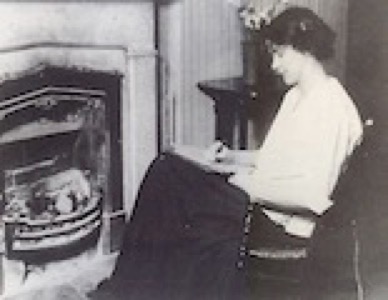Literary Critique - A Jury of Her Peers
July/05/2016 03:29 PM Filed: Literary Critiques

Photo Credit: New York Public Library
(Wikimedia Commons)
Authoritarian Marriage and Early Feminism
Susan Glaspell’s 1917 story, “A Jury of Her Peers,” depicts two feminists choosing to keep evidence hidden after a neighbor hangs her abusive husband. A search of her home leads to suspicion, yet proof of Mrs. Wright’s guilt cannot be found until wives of the investigators discover a treasured canary strangled by Mr. Wright. The demure Mrs. Wright is described as lacking in vitality and life, her spouse, intolerant and controlling.
One observer relates her impression of the man to the sheriff’s wife. “No, Wright wouldn’t like the bird—a thing that sang. She used to sing. He killed that too.”
Glaspell writes of a quiet, unassuming woman who turns into a criminal, erupting like a volcano in an act of violence after years of mistreatment. This author views marriage with sardonic contempt. Glaspell asserts her outrage through her characters and portrays the investigators as dictatorial, belittling women’s interests and activities.
This plot does not resolve the problem in question, but has definite finality. The investigators’ wives hide the dead canary, evidence that could prove Mrs. Wright’s motivation. These women are this suspect’s only jury.